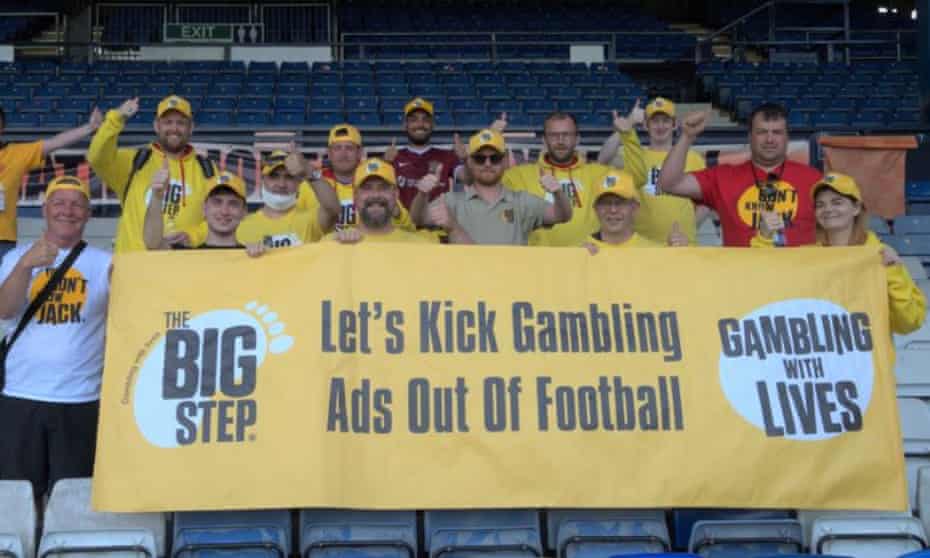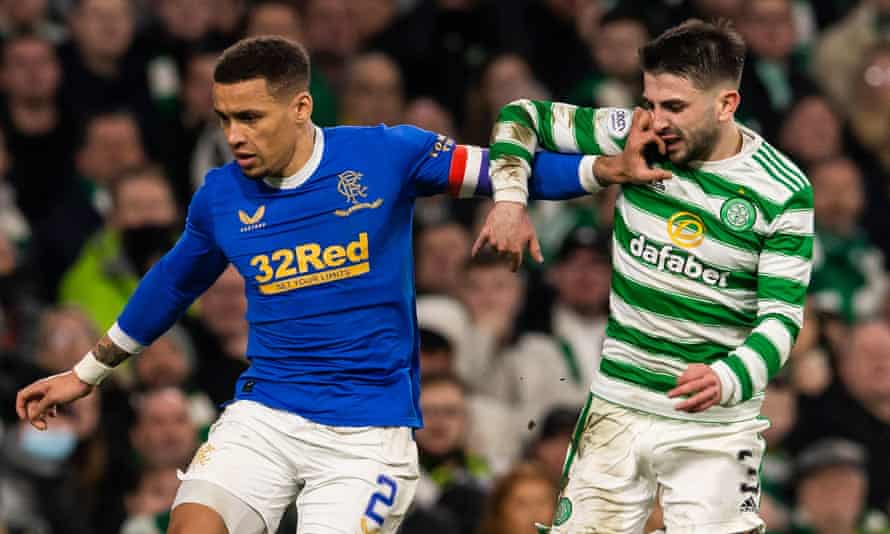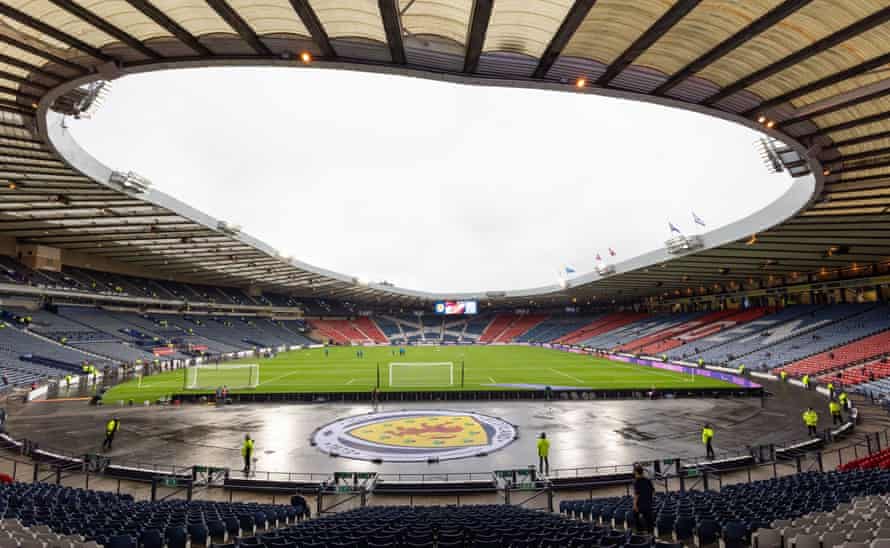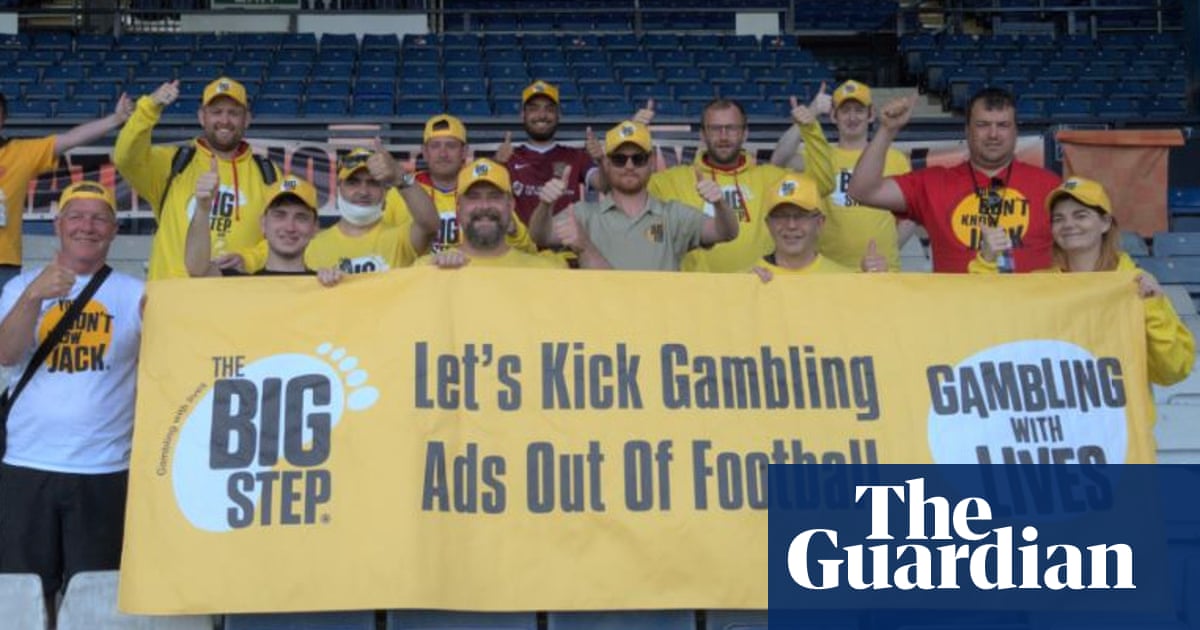Campaigners take three-day march in push to end football’s gambling habit
A walk from Edinburgh to Glasgow, with stops at 10 stadiums, is the latest move from a group motivated by painful memories

A lot started to make sense for Peter Keogh in the aftermath of the suicide of his son, Lewis. The 2am requests for an online game of Scrabble, for example, in the months leading up to his death. Lewis, who died in 2013 at the age of 34, was seeking relief from the grip that gambling had on him. “His suicide note said he was too ashamed to talk about it,” says Peter. “We didn’t know he was living with this horrendous addiction.”
Starting on Friday, Lewis’s former partner Jane and her daughter Jilly will form part of a 40-strong group walking from Edinburgh to Glasgow. Recovering gambling addicts, bereaved families and affected others will combine. The effort forms part of The Big Step, a campaign aimed at ending all gambling-related advertising and sponsorship in football, overseen by the Gambling With Lives charity. Peter Keogh and his wife, Sadie, are longtime supporters.
“Football clubs have a responsibility to the young people that come and support them,” Peter says. “Every shirt or football element that has a betting logo presents the subconscious to the seven-year-old who loves the game: ‘That must be good if my team is wearing it.’ That’s very dangerous but it is how advertising works. It is subtle but effective.”
Lewis’s ashes are scattered under the pitch at Hillsborough. Sheffield Wednesday apologised to his parents after gambling-related branding later appeared at the stadium. “If you go out and look, hard work will get you your [alternative] advertising,” Peter says.
Scotland is significant because its two biggest clubs, Celtic and Rangers, have the names of gambling firms across the front of their strips. The Scottish Professional Football League, Scottish Cup and League Cup no longer have bookmakers as title sponsors but until recently all did. “Gambling has always been a big financial contribution to the finances of football,” said Neil Doncaster, the SPFL’s chief executive, last year.
Peter Keogh believes politicians are waking up to the fact this alliance is harmful. “It will take parliament to change things but the impetus is in our favour now,” he says in respect of banning gambling sponsorship in football. “If that takes time, it probably takes more lives. The day that we have zero betting advertising in sport will be a great one for me.”

The three-day walk will call at the homes of Spartans, Hibs, Hearts, Livingston, Motherwell, Hamilton, Celtic, Partick Thistle and Rangers before concluding at Hampden Park on Sunday evening. Hearts represent an interesting case. “In 2014 we made the decision not to take any direct sponsorship from gambling companies,” says Catriona McCallum, the marketing and communications director. “We, like many clubs, strive to have a positive impact on our community and this was an important step for us. We have been fortunate enough to secure a number of large number of corporate sponsors who are attracted by our social responsibility.”
Among those participating is Kelly Field. “I suffered with an online gambling addiction for many years, which was fuelled by a relentless barrage of advertising,” she says. “Gambling advertising and sponsorship, in football and elsewhere, makes people think that gambling is totally normal and safe, when the reality is very different.”
Field contemplated suicide. So, too, did James Grimes, who founded The Big Step after a 12-year addiction battle. Although he believes the work of parliaments is important, Grimes feels football supporters can play their own part.
“There is a core value in persuading clubs and their fans to get behind this,” he says. “If we can get fans to lobby their clubs – and this happened recently at Norwich City – then we can bring clubs with us. We now have 18 of them who back our campaign. I have no doubt that one day gambling advertising won’t be allowed in football so those clubs are getting ahead of this. We are hoping our presence at the grounds will at least persuade some clubs to rethink their partnerships or pledge to move away from them.

“More and more clubs are being more socially conscious. More and more people are seeing the harm caused. Footballers themselves are also in difficulty; the Sporting Chance Clinic said gambling is now the most prominent addiction among footballers. So the clubs know what is happening.”
Grimes and Peter Keogh stress that they are “not anti-gambling”; nuance is important. Grimes says: “I genuinely support people’s right to have a bet. We are not trying to stop that. We are on the side of the average gambler. We want gambling to be as safe as it can be. Taking advertisements away from football won’t stop people from having a bet. Thirty years ago, people knew where to go and put a bet on without needing that to be on the front of a football shirt or on LED boards around a pitch.”
The Betting and Gaming Council, which represents gambling companies, said the industry had provided vital funding during the pandemic, including £40m to the English Football League, and that a study last year from Prof Ian McHale of the University of Liverpool “concluded there was no evidence that sponsorship of clubs or leagues by betting operators influenced participation in betting”. The BGC added that betting advertising and sponsorship had to comply with strict guidelines and that safer gambling messaging was regularly and prominently displayed.
Reports have suggested the Department for Digital, Culture, Media and Sport’s review of the 2005 gambling act could lead to a ban on gambling-related shirt sponsorships from 2023. For now, the battle for the campaigners continues.
“I have never thought this is the fault of football,” says Grimes. “It is the fault of regulation, weak regulation which allows gambling companies to exploit loopholes and advertise wherever, whenever, to whomever. Football just laps it up because it is easy. I hope this walk encourages clubs to make the right choice.”
